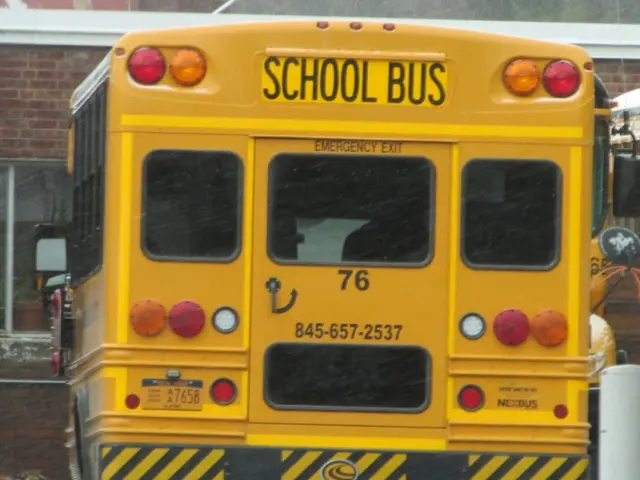Strategists recommend maintaining composure in the face of poor academic performance.
In the upcoming days, report cards will be distributed, and for many students, this could bring feelings of disappointment, tears, insecurity, and fear. The North Rhine-Westphalia (NRW) Ministry of Education has emphasized the importance of a supportive approach when dealing with poor report cards, as expressing dissatisfaction and anger can damage a child's self-image.
According to experts, fear blocks the brain, making it harder for children to learn and perform well. To effectively respond and support children during this time, the focus should be on fostering motivation, confidence, and a positive attitude towards learning rather than just emphasizing grades.
Here are six evidence-based strategies for parents and caregivers to help children respond constructively to poor report cards and build resilience:
1. Emphasize Effort and Progress Over Grades: Praise children for their effort and resilience, especially when they finish something difficult. Celebrate small successes to build their confidence and show that success means different things to different people. Discuss progress towards achievable goals and align these with the child’s own aspirations to keep motivation high.
2. Maintain a Positive Learning Environment: Model a positive attitude towards school and learning. Demonstrating confidence in facing challenges, focusing on strengths, and keeping a constructive outlook will encourage children to adopt similar attitudes. Avoid negativity about school or the child's performance, which can be discouraging.
3. Engage Actively With the Child’s Learning: Help organize study routines that make learning a regular habit. Be actively involved by reviewing homework, helping with study tactics, or finding after-school programs or trusted support if you cannot be present. Encouraging play should not override study time but be balanced properly.
4. Collaborate with Teachers and School Staff: Work constructively with teachers and school management. Teachers can provide insights into accommodations or support strategies tailored to the child’s needs. For children with specific challenges, Individualized Education Plans (IEPs) and accommodations such as scheduled breaks or one-on-one support can be vital.
5. Provide Positive Role Models and Encouragement: Introduce children to role models who have overcome similar challenges to reinforce that difficulties can be managed, and success is possible. Discuss examples of perseverance and how others have tackled barriers to learning and achievement.
6. Foster Open Dialogue About Feelings and Interests: Ask children what they enjoy and how they feel about their schoolwork. This encourages self-reflection and helps tailor support to their interests and emotional needs. It also shows that their feelings and efforts are valued beyond just academic scores.
In addition to these strategies, the nationwide organization "Number against Sorrow" offers free and anonymous help. It is generally advisable to seek support early on, not just before the report cards are issued. Canceling beloved activities like soccer training is considered wrong and counterproductive. Parents should offer their children help with learning and should always talk to the teachers.
The NRW Ministry of Education advises against using pressure or punishment to improve school performance. Instead, they emphasize solidarity and collaboration with offspring to find ways to improve performance. They also advise against setting overwhelming goals for children.
Performance pressure, school stress, fear of failure, and conflicts with parents can affect students throughout the year. By combining these approaches, parents and caregivers can help children respond constructively to poor report cards, build resilience, and develop positive learning habits that lead to improved outcomes. Accusations and punishments are not effective ways to improve school performance in the long run; children need the security that their parents stand by them.
- To support children during poor report card periods, consider emphasizing effort and progress over grades, praising their resilience and celebrating small successes to foster motivation and confidence.
- To promote personal growth and effective learning, maintain a positive learning environment, modeling a confident attitude towards school and learning, and engaging actively with the child's learning through study routines and collaboration with teachers.




